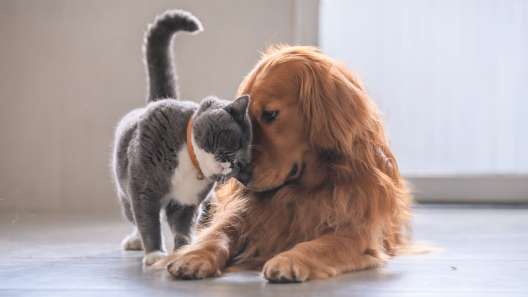
-
Activity Level:
low
-
Shedding Level:
low
-
Grooming Level:
high
-
Trainability:
high
-
Good for Novice Owners:
high
-
Adaptability:
high
-
Kid/Pet Friendly:
often
-
Prey Drive:
low
-
Watchdog:
aware
- Average Size: Small
- Average Lifespan: 10-14 years
- Registered?: other
Papi-Poo Dog Breed Information
Overview
Temperament
Adaptability
Health
Owner Experience
Grooming
Activity Level
Size
Life Span
Did You Know?
A Papi-Poo is a cross between a Papillon and a Miniature Poodle. These little dogs are affectionate, sweet, and playful. They love being around their favorite humans
The American Kennel Club does not recognize the Papi-Poo, but other notable dog registries do. The American Canine Hybrid Club, International Designer Canine Registry, Designer Dogs Kennel Club, and more all recognize the Papi-Poo.
Papipoos tend to have a sweet, gentle disposition. They are devoted to their families and bond closely with them. They get along well with children who can interact gently with them, other dogs, and other pets.
They are even open and friendly with strangers as long as they are well-socialized. They do tend to bark to alert you, which can become a nuisance behavior if left unaddressed. By training your dog to stop barking early on, you can keep alert barking from becoming problematic.
Papipoos are highly adaptable dogs that do well in apartments as well as larger homes. They are sensitive to heat and do well with some cold, but may need to bundle up to stay warm on winter walks.
Their small size can make them a target for birds of prey, so you do not want to leave them in a yard unattended. They also do not like to be left alone for long periods of time and can be prone to developing separation anxiety if you don’t work with them on it early and often.
Potential health concerns to be aware of in a Papipoo can include epilepsy, hypothyroidism, Von Willebrand’s disease, collapsed trachea, Legg-Calve-Perthes disease, Addison’s disease, eye problems, luxating patella, and hypoglycemia.
Reputable breeders will screen their dogs to avoid passing issues to puppies. So, make sure you ask about the health and genetic history of both of the parents. You can also ask about any health tests or clearances that have been done.
As a small dog breed, the Papipoo is more prone to developing dental diseases. Because gum disease in dogs can become serious and lead to other health issues, good dental care throughout your Papipoo’s life is essential.
A Papipoo is an intelligent dog that picks up on things quickly and is eager to please. They are also sensitive and in-tune with their owners. This makes them a highly trainable dog that is a good fit for owners of all experience levels.
Even if you don’t necessarily need them for training, obedience classes are still a good idea. In addition to the other benefits of puppy training classes, it’s a great way to bond with your puppy and get some socialization opportunities too.
A Papipoo coat can range from straight to curly and will be non or low-shedding. Daily brushing is required to remove tangles and prevent mats. Professional grooming is recommended every 4-8 weeks.
In addition to coat care, you will also need to take care of your Papi-Poo’s nails, ears, and teeth. If you’re making regular visits to the dog groomer, they will be able to help you take care of some of this, but you will still need to do maintenance at home between visits.
Cutting nails once or twice a month is usually enough to keep them from growing too long and causing issues. Checking ears weekly and carefully cleaning your dog’s ears as needed can help prevent ear infections. Daily dental care plus cleanings at the vet when needed can help prevent painful dental diseases later in life.
Although they will be energetic while playing, the Papipoo is not a high-energy dog. They sit in a lower activity range and tend to tire themselves out easily. Daily walks plus some playtime are usually enough to keep these little dogs happy and healthy.
They love spending time with you, so will likely be up for more activity if you are. Just make sure they aren’t overexerting themselves trying to keep up with you and be prepared to carry them if they get too tired.
A fully-grown Papipoo usually stands 10-11 inches tall and weighs 6-14 pounds.
Maltipoms generally live for 10-14 years.
A Papipoo is also referred to as a Papidoodle and Papoodle.









